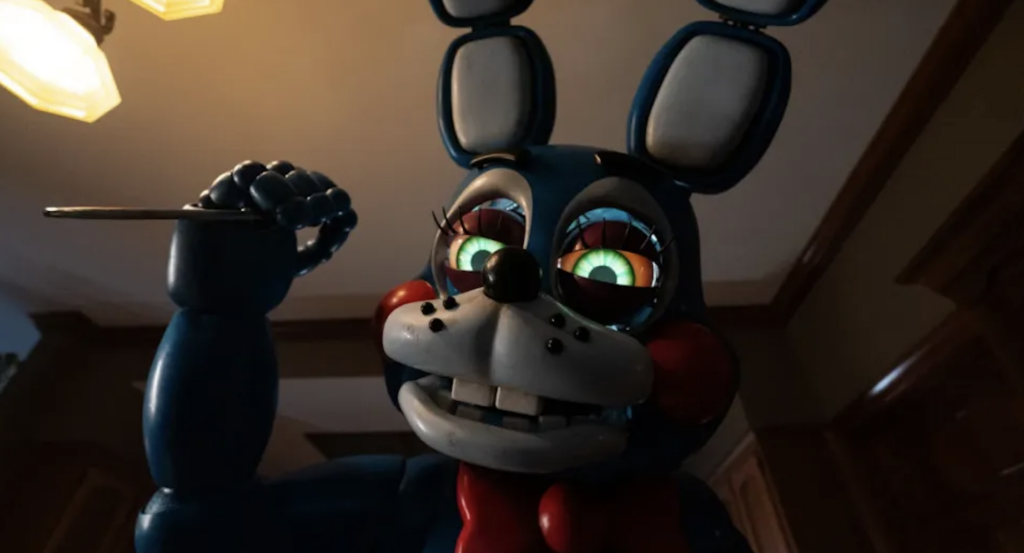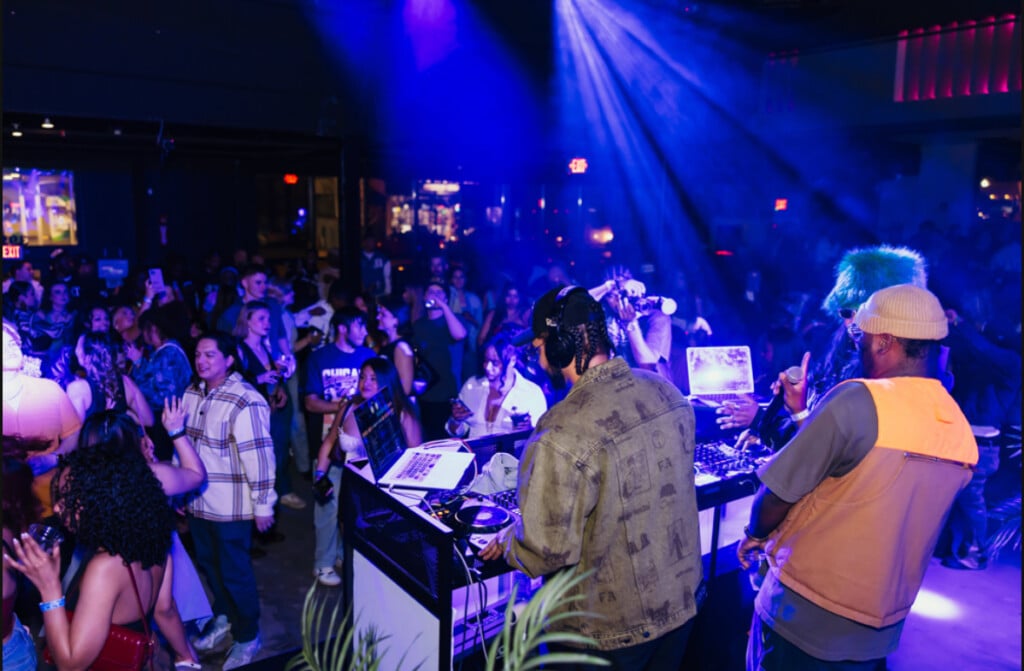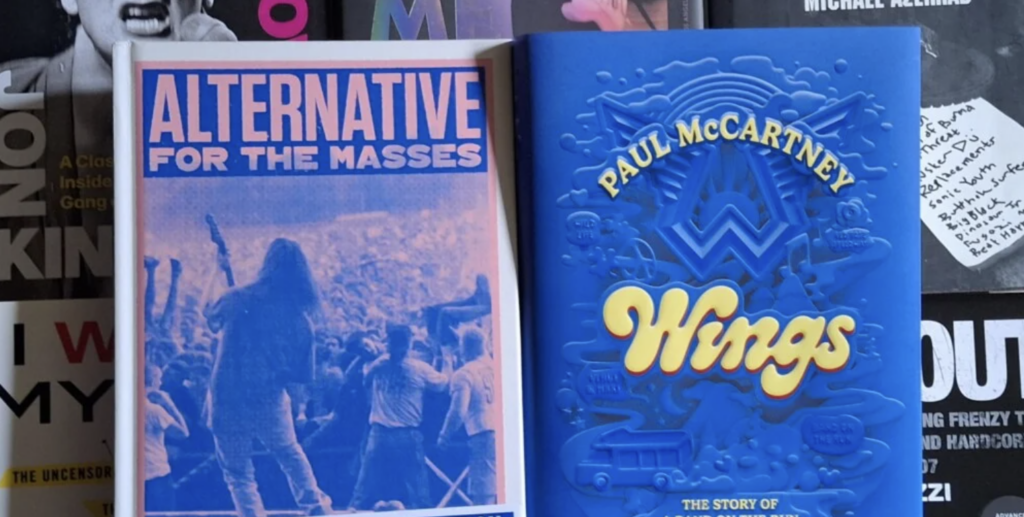Uncle Acid and the Deadbeats’ Kevin Starrs on pushing into new sonic spaces
Over the last decade, England’s Uncle Acid and the Deadbeats have become one of the foremost purveyors of darkly psychedelic, slightly doom-inflected rock ‘n’ roll. The band’s series of concept albums–beginning with 2011’s Blood Lust, and all the way through 2018’s Wasteland–have seen the band’s sound grow, with their last album incorporating new sounds and flavors.
It’s definitely music for the metalheads, but your dad and his Uriah Heep and Blue Oyster Cult albums will also dig into what Uncle Acid has to offer.
The band began as the brainchild of Kevin Starrs, who’s still the main man behind all of the group’s songwriting. We spoke with him via Zoom about the creative process and returning to touring ahead of their Sunday, March 27 show at the Truman.
The Pitch: What has Uncle Acid been up to in the three years since the release of Wasteland?
Kevin Starrs: We toured that for a year and a half, right up until the start of the pandemic. Really, we were one of the last bands out. I think we were still playing live at the end of February 2020 over in Japan and in Australia, then we came back and lockdown happened almost immediately. Then we were all stuck in our various countries and, yeah—that was it.
We had a tour booked with Twin Temple that got pushed back a couple of times and then, eventually we just had to cancel it because obviously we didn’t know when things were gonna get better. I’ve just been writing basically for the whole time since the lockdown, really.
Given that so much of Uncle Acid’s studio work begins, as you just said, with just you, how does the band, but also touring, change the dynamics of these songs?
I’ll record demos for everybody with all the parts and just send them to people and just say, “This is how I want it to sound,” and then people add their own interpretation of those parts, but essentially it’s the same as what the demos are. Then we come together, and then we start rehearsing the songs, and then we record them.
The only difficult thing is we all live in different countries. Me and Justin [Smith] live in the UK. Vaughn [Stokes, rhythm guitar] lives in Western Canada. Jon [Rice], our drummer–he lives in the States–so it’s difficult when there are travel bans and things like that going on. It’s difficult to all get together and record but we’re lucky now that those travel bans have been lifted so we can start making progress on that front.
Potential new music is great news. Wasteland notably featured a few departures from the usual instrumentation the band is known for, such as the horns on “Bedouin.” Do you see yourselves pushing further into new sonic spaces?
There could be. I mean, there’s so much stuff that’s been written, it just kind of depends. It’s just figuring out what’s gonna be released first and what’s gonna come after that. It’s stuff piling up. There are definitely a few departures, which I think people might be horrified by, which is always good.
Speaking of horror, so many of your songs over the years have incorporated elements of horror, sci-fi, and other genre films. When you use samples from movies like Witchfinder General, what leads you to that?
It just sort of depends on what the concept of the album is. For example, Blood Lust was very much inspired by Matthew Hopkins and John Stearne, the witchfinder general who actually did go around and set up these witch trials around the east of England, where I was living at the time. It was sort of local history for me and I did a lot of reading up on the actual witch trials and things like that. Then, you start watching movies that have been inspired by that, like Witchfinder General, the Vincent Price movie. Once you get the basic concept of an album, then you start looking for films or whatever other references that you can bring to expand on that.
It’s not often you hear a musician talk about essentially doing research for songwriting. Has that been part of your songwriting process in the 10 years since?
Now and again, things will come up. The song “Wasteland”–and the whole album–I mean, it’s not really inspired by T.S. Eliot, but there is some references to the T.S. Eliot poem or certain phrases and things like that that were lifted from that. It just sort of depends on how I feel. I mean, With Blood Lust and Witchfinder General, it was something that I was very interested in personally anyway, so I was quite happy to sort of dive in and research it and go to the local museum that had all these documents.
You’re reading all these words–these archaic words that have long since disappeared–and a lot of those words ended up in a song like “Death’s Door.” If you read the lyrics to that, there are words that are not used anymore, but at the time they were definitely prominent.
View this post on Instagram
With Uncle Acid, the visual is just as important as the aural and on this tour, you’ve teamed up with some interesting artists to create shirts, like Hauntlove or Eric Adrian Lee. How have you partnered up with them, and what was the process of working together like–do you just like trust the work that they do and let them go at it?
A lot of it’s through the internet. On Instagram, you see things. There are so many good artists around. If you find somebody you like, you just message them and ask them if they wanna work together. We pay them and sometimes, they want direction, and sometimes, they just wanna do their own thing and you just do whatever feels right. It’s worked out really well. We’ve got a really good group of artists that we can use and we’re always looking for other good artists.
Justin Miller–Hauntlove–and Eric Adrian Lee are people who have an aesthetic that is very much in line with your own, drawing so much from classic ’70s film and music.
Yeah, exactly. I mean, we’ve worked with Hauntlove for quite a few years now. He’s done a few t-shirt designs, a few poster designs for different shows and yeah–he’s great. You sort of get pulled into people that have similar interests to you, I guess.
Your visual aesthetic extends to your videos, as well, but is it a conscious thing to not have your shows be quite as crazy visually?
Again, we’ve done all kinds of shows. We’ve done it in complete darkness. We’ve done it with a backdrop. The past couple of tours and including this tour, we’re doing it with projections. We’ve got a guy that does the visuals who’s excellent–Mothpowder Light Shows is his name–and it’s such a good show. It’s great for people that wanna have something else to focus on and that’s great, ’cause I don’t wanna be the center of attention on the stage, so it’s nice to have something else that people can look at.
After having to reschedule this show and everything, how did that change your approach to this tour? Is it just what you had originally planned, but delayed?
Kind of. I mean, initially it was. If we went out in 2020, it would’ve been a different setlist. I started thinking about adding a couple of new songs to the set, but because there have been so many delays–there’s production delays and manufacturing delays at the pressing plants–it’s just pushed things back so far and I don’t really like to play songs that people haven’t exactly heard yet, because if the songs go down badly, it could sort of have a knock-on effect about how you think about the songs before they’re even being released.
I’d rather just have them recorded, have ’em ready and released, and then you start playing them rather than second-guessing yourself, thinking, “Oh, well it wasn’t the reaction I was hoping for from this song,” or whatever. At the minute, we’re doing the 90-minute set. All the albums are covered and people seem to really, really enjoy the setlist.
Uncle Acid and the Deadbeats play the Truman with openers King Buffalo on Sunday, March 27. Details on that show here.





